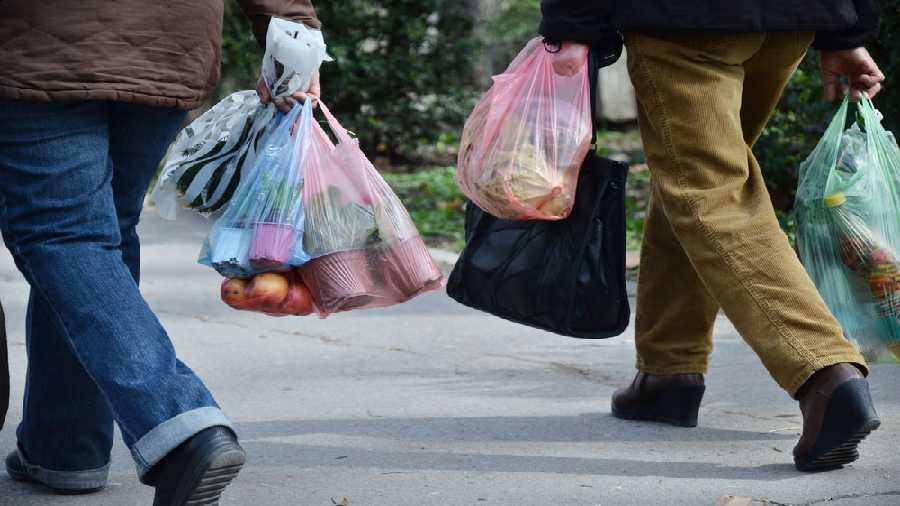The Kolkata Municipal Corporation (KMC) has decided to enforce the plastic ban across markets and, according to Debabrata Majumder, the mayoral council member in charge of solid waste management, the drive will begin with markets in Jadavpur, Bijoygarh, Santoshpur and Baghajatin.
Reason: The civic body wants to start early so that drains and canals don't get clogged with plastic ahead of the monsoon.
Senior KMC officials met representatives of the market committee of the Jadavpur market recently and asked the shopkeepers to switch from plastic to cotton bags.
Councillors from at least 10 wards in Dhakuria, Jadavpur, Lake Gardens and Garfa met on Friday at the Borough X office on Prince Anwar Shah Road to plan measures to enforce the ban, which has been in place for several years but hardly enforced.
“Plastic and thermocol are the two biggest contributors to the clogging of rainwater pits, drains and canals. We will start enforcing the ban at the Jadavpur market,” Majumder told Metro.
“In another fortnight, we hope to implement the ban in a few other markets in parts of Bijoygarh, Sree Colony, Baghajatin and Santoshpur.”
Engineers from the KMC’s drainage department said plastic remained the single biggest threat to Kolkata’s drainage system. Every monsoon, heaps of plastic waste get deposited at the pumping stations, resulting in slower dispersal of accumulated water.
In Kolkata and elsewhere across the country, plastic bags of less than 50 microns in thickness are banned.
The environment ministry has directed that from July 1, manufacture, import, distribution and sale of single-use plastic bags less than 75 micron in thickness will be prohibited.
From January 1, 2023, plastic bags less than 120 micron in thickness will be banned across the country.
“Rainfall is now more intense and of short duration, resulting in quick waterlogging. Since Kolkata is a deltaic plain and lacks a proper slope, water drains out slowly,” said Kalyan Rudra, chairman of Bengal’s pollution control board.
“The presence of plastic further slows down the flow of water through the drainage channels. This plastic finally goes to the sea and that has to stop.”
Civic officials are stressing the use of thin cotton bags that are cheap and biodegradable. Over the next few weeks, teams will visit the markets in and around Jadavpur to check whether plastic bags are still in use or not.
The Tollygunge-Panchannagram (TP) canal and an intercepting canal drain out water from Kasba, Jadavpur and Tollygunge. Smaller canals from parts of the Sulekha, Baghajatin and Patuli areas discharge water into the TP canal. The Suti and Guniagachhi canals drain out water from the Mukundapur-New Garia belt.
“When water moves slowly through the drainage channels, parts of the 8B bus stand, Regent Estate, Bapujinagar, Bijoygarh and Ganguly Bagan remain waterlogged for long hours,” the official said.
